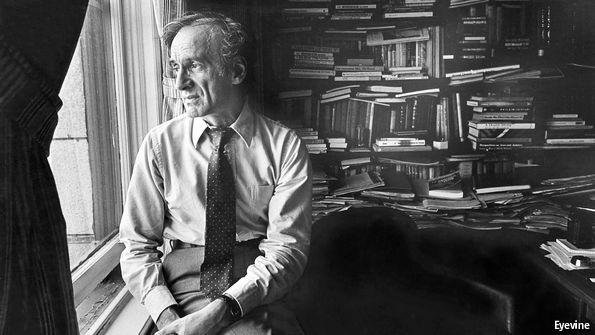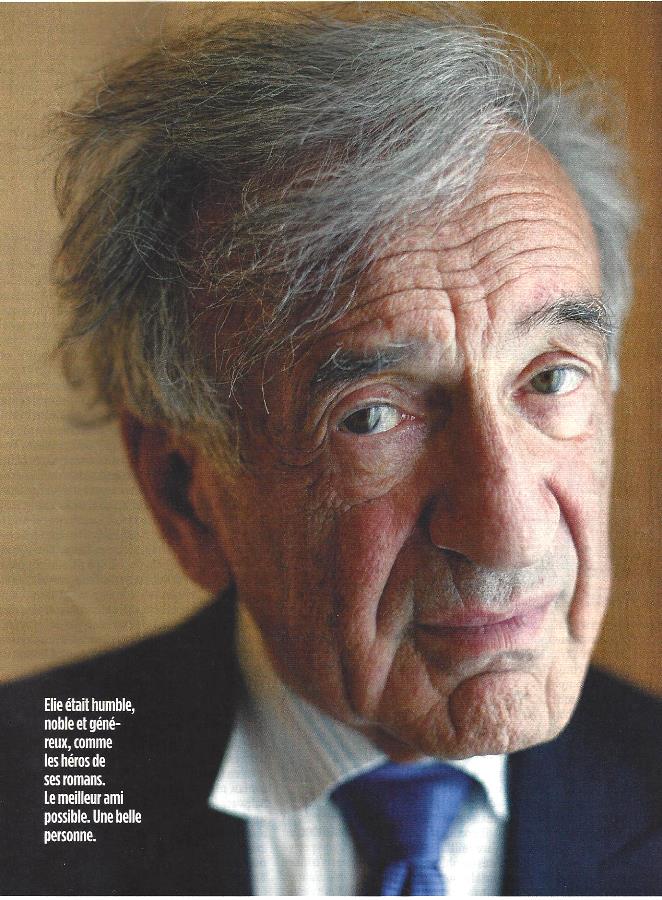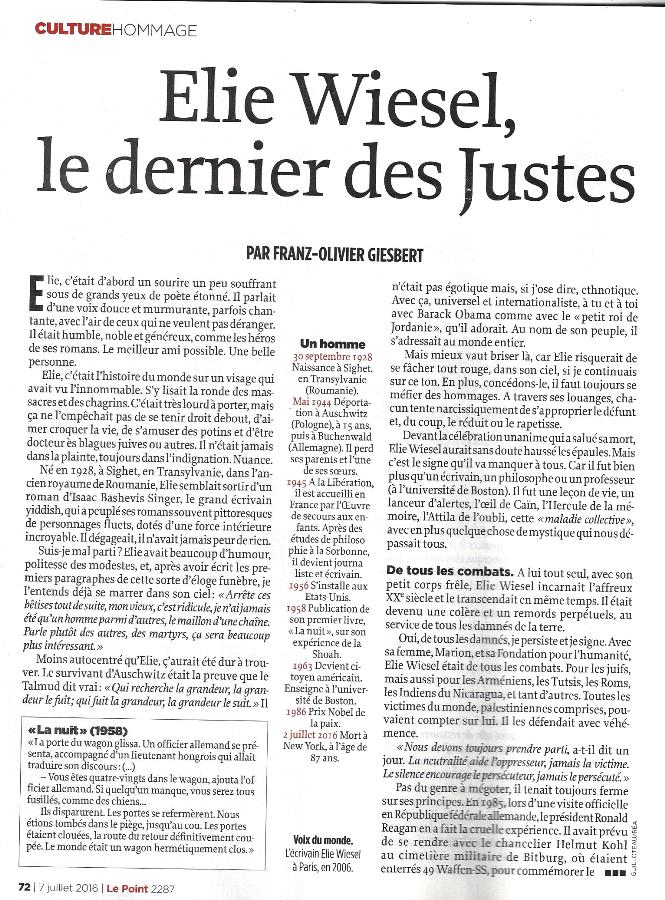
ON REFLECTION, the habit had begun with Moishe the Beadle. It was Moishe who led Elie Wiesel, much too young, to study Kabbalah. Most people in the little shtetl of Sighet, in Transylvania, knew it was dangerous even to go near those mysteries. But Moishe insisted on probing, seeking, enquiring for deeper and deeper truths. Questions, he said, possessed power. The more a man asked, the closer he got to God.
And why indeed had the townsfolk not asked more questions when, in 1942, Moishe was suddenly deported? Why had they not listened to his agonised cries of warning when he returned, weeping, knocking on doors? Why had they insisted, even when the town was divided into two ghettos by the Nazis, that they could live in this new world and treat it like a temporary vacation? Why, in 1944, had they never heard the word “Auschwitz”?
As he was deported too, questions poured into Elie’s 15-year-old head. Why were his friends and neighbours put into sealed cattle cars, to travel for two days with almost no air or water? Why were they delivered to a place fogged with the stench of human flesh, where pits of fire devoured the bodies of babies and children? Why were they stripped of everything, shaved, tattooed with numbers and made to run everywhere? Why, within a day, was he torn from his mother and youngest sister, never to see them again? How, in the 20th century, could such things happen, and the world stay silent?
The questions accumulated and became more disturbing. Why did fellow-inmates, as well as Germans, beat new arrivals and call them sons of bitches? Why did the prisoners watch the routine hangings for minor thefts without emotion, staring indifferently at the swaying, swollen faces? Why did he find himself thinking of nothing but his ration of soup and bread? What led him to claw his way through a pile of dying men to save just himself? Most dreadful of all, what led him to ignore his dying father’s request for water, when his father was the only and dearest thing he had left in the world?
When, after a year, he was freed from the camps, he knew he had survived to tell the tale. He must sear the memory of the Holocaust on human minds for ever. In a world that preferred to blot it out, his motto had become Zachor! Remember! But for a full decade he asked: How? Even as a student of literature at the Sorbonne, even as a working journalist, how could he find the words? What phrases could do justice to inexpressible evil? What language could he write in, when language itself had been profaned by obscene meanings for “selection”, “concentration”, “transport”, “chimney” and “fire”?
Perhaps silence was a better response. Several famous rabbis had excelled at it. After all, what authority did he have to speak for the dead, to recount their mutilated dreams? None. But how else to remember them? For 800 pages in Yiddish, itself a relic that had to be treasured and preserved, he poured out his memories. Much shortened, they became “Night”, published in Engish in 1960 and overlooked at first. He persevered. What other reason had he to live, when six million had died? What else could be done to honour those ghosts? In 1964 he returned to Sighet to find the town prospering but the Jews forgotten, the closed synagogues filled with dust. He revisited the labour camp at Buna to find it had vanished, reclaimed by trees and birds. Who could prevent the disappearance of these things?
With a book every year—57 in all, each permeated by “Night”—with lectures, articles, even cantatas, he rammed the subject of the Holocaust home. His sad lined face, the shaggy hair, the brooding eyes, became ubiquitous where Jewish leaders or luminaries gathered. By his 80th birthday the Holocaust was established on modern-history curriculums, his books were on reading lists, he had won the Nobel peace prize, and millions of visitors every year streamed to the Holocaust Memorial Museum in Washington, DC, which he had helped to found. Widening his scope beyond his beloved Israel, he set up his own foundation to pursue human rights wherever they were threatened, in Cambodia, Bosnia, South Africa, Chile, Rwanda. For just as he still had nightmares of his parents and the dark, just as he still feared random attackers and journeys by train, who was to say that the Holocaust might not happen again?
Nor did the questions ever stop. His Talmud-studying childhood had been devoted to God, but where had God been in the camps? Why had He allowed Tzipora, the little golden-haired sister, to die for nothing? Why had He caused old men to fall down from dysentery on forced marches, when they might have died peacefully in their beds? Why had God created man, if only to abandon him? What exactly did God need man for?
Against the melancholy that never really lifted—for how could it ever
do so?—he clung to the words “and yet”. The sun set, and yet it rose again.
Delirium struck, and yet it passed. He railed at God, and yet still strapped
on his tefillin and recited his prayers as fervently as he had done
on the day of his bar mitzvah. For ritual, too, was part of memory. And
besides, how could he ever get closer to the mystery of God, unless he battered
Him with his doubts?


